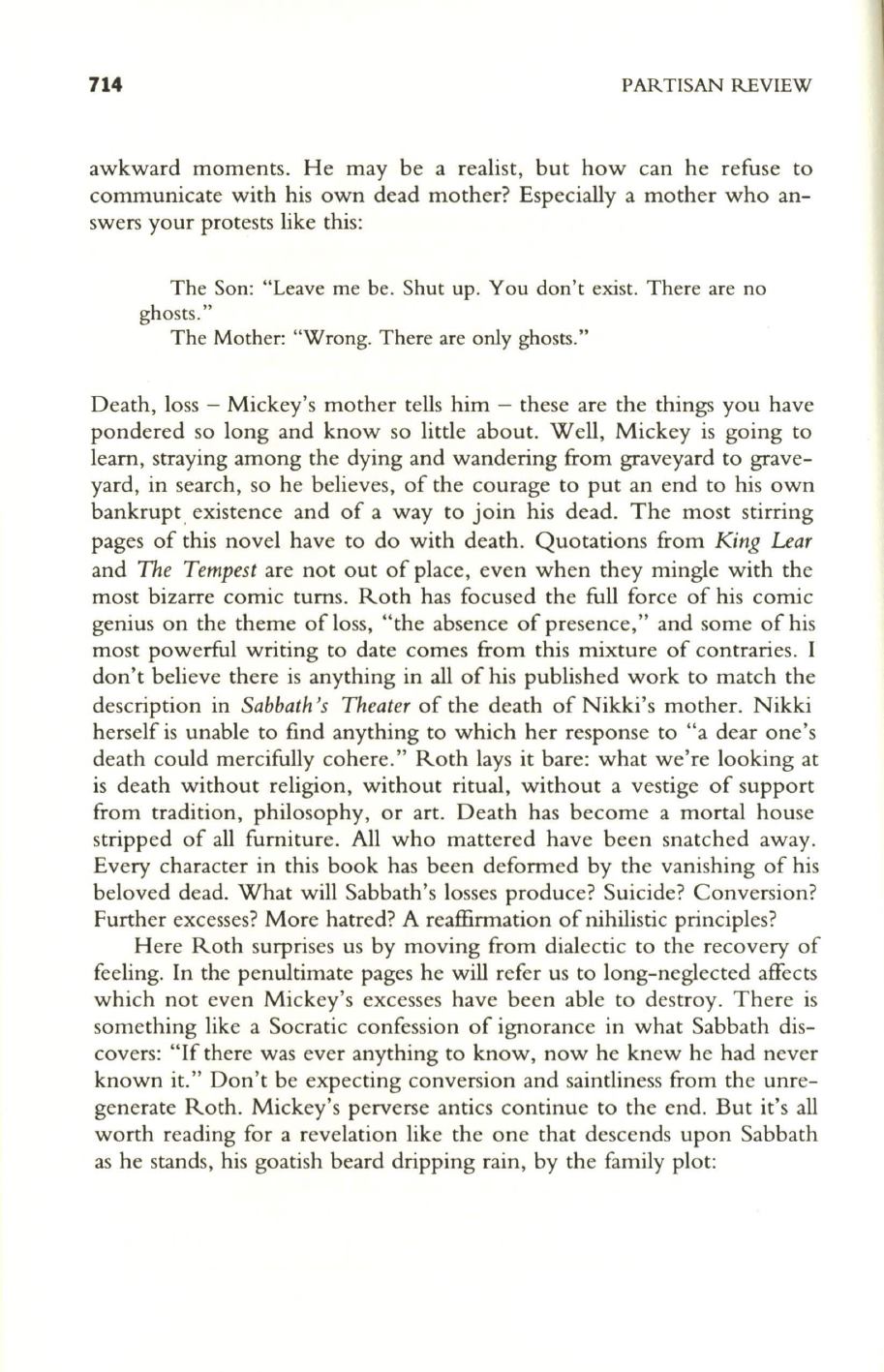
714
PARTISAN REVIEW
awkward moments. He may be a realist, but how can he refuse to
communicate with his own dead mother? Especially a mother who an–
swers your protests like this:
The Son: "Leave me be. Shut up. You don't exist. There are no
ghosts."
The Mother: "Wrong. There are only ghosts."
Death, loss - Mickey's mother tells him - these are the things you have
pondered so long and know so little about. Well, Mickey is going to
learn, straying among the dying and wandering from graveyard to grave–
yard, in search, so he believes, of the courage to put an end to his own
bankrupt existence and of a way to join his dead. The most stirring
pages of this novel have to do with death. Quotations from
King Lear
and
The Tempest
are not out of place, even when they mingle with the
most bizarre comic turns. Roth has focused the full force of his comic
genius on the theme ofloss, "the absence of presence," and some of his
most powerful writing to date comes from this mixture of contraries. I
don't believe there is anything in all of his published work to match the
description in
Sabbath's Theater
of the death of Nikki's mother. Nikki
herself is unable to find anything to which her response to "a dear one's
death could mercifully cohere." Roth lays it bare: what we're looking at
is death without religion, without ritual, without a vestige of support
from tradition, philosophy, or art. Death has become a mortal house
stripped of all furniture. All who mattered have been snatched away.
Every character in this book has been deformed by the vanishing of his
beloved dead. What will Sabbath's losses produce? Suicide? Conversion?
Further excesses? More hatred? A reaffirmation of nihilistic principles?
Here Roth surprises us by moving from dialectic to the recovery of
feeling. In the penultimate pages he will refer us to long-neglected affects
which not even Mickey's excesses have been able to destroy. There is
something like a Socratic confession of ignorance in what Sabbath dis–
covers: "If there was ever anything to know, now he knew he had never
known it." Don't be expecting conversion and saintliness from the unre–
generate Roth . Mickey's perverse antics continue to the end. But it's all
worth reading for a revelation like the one that descends upon Sabbath
as he stands, his goatish beard dripping rain, by the family plot:


